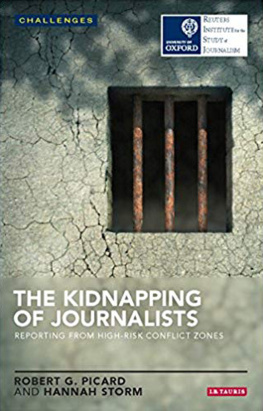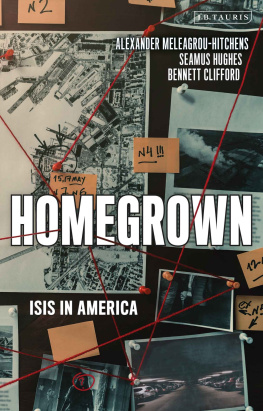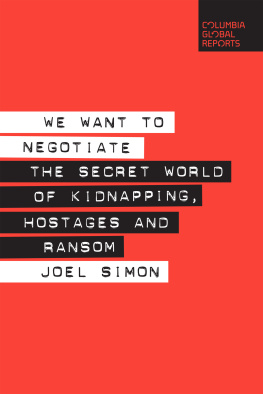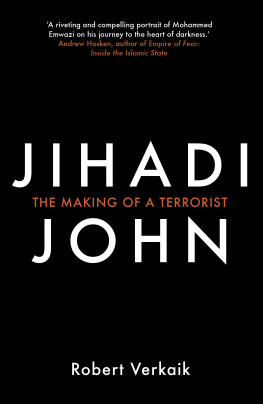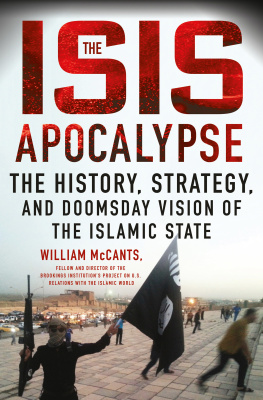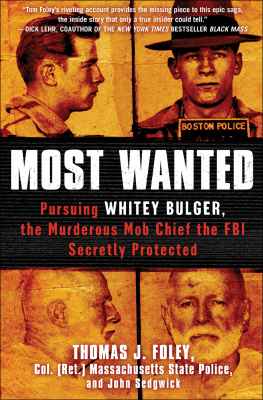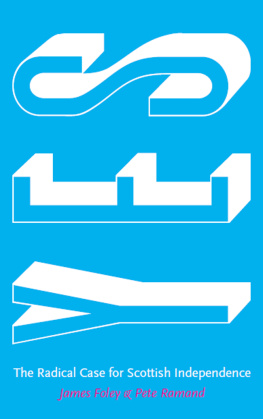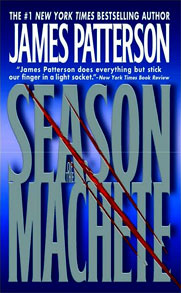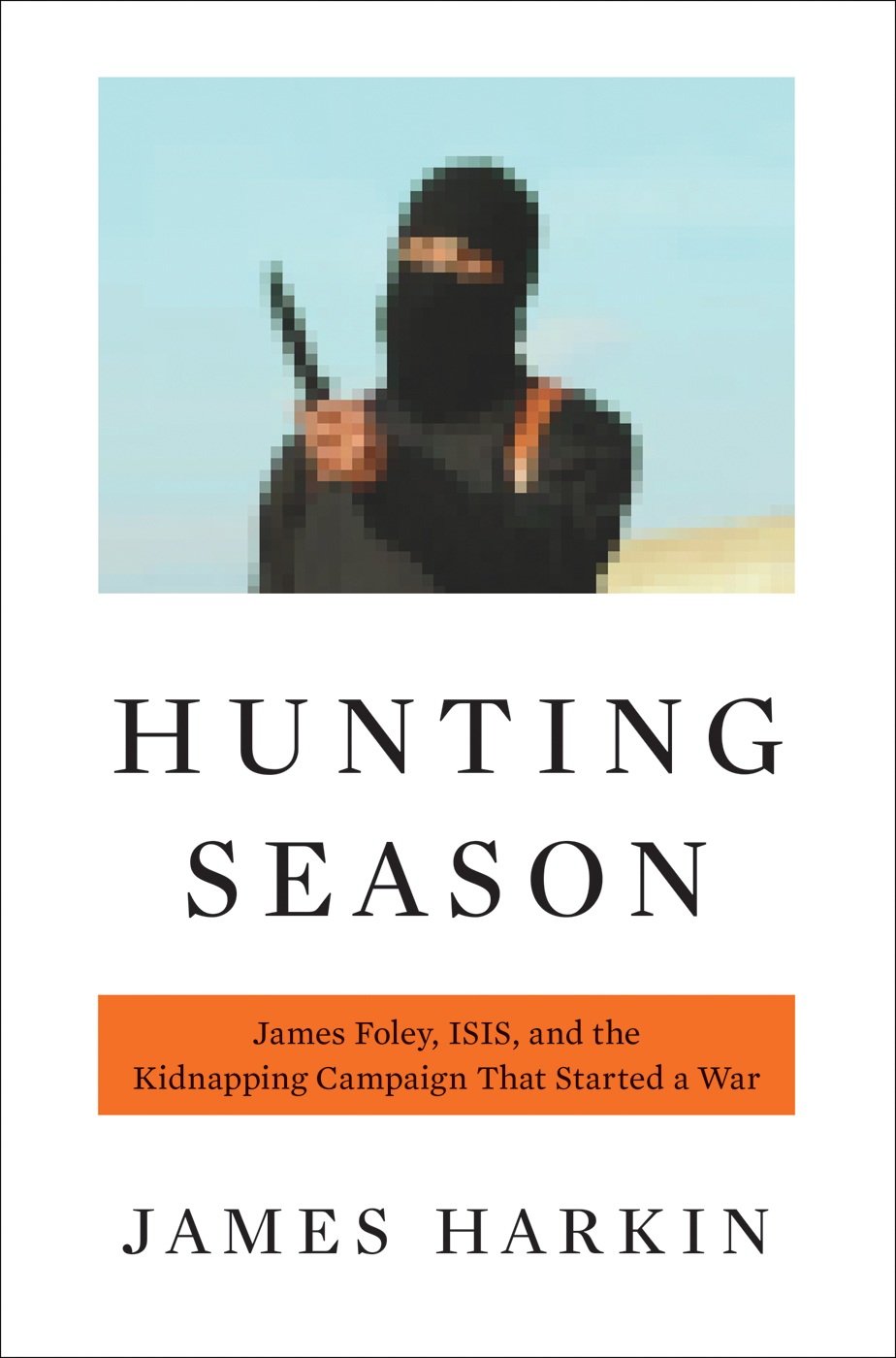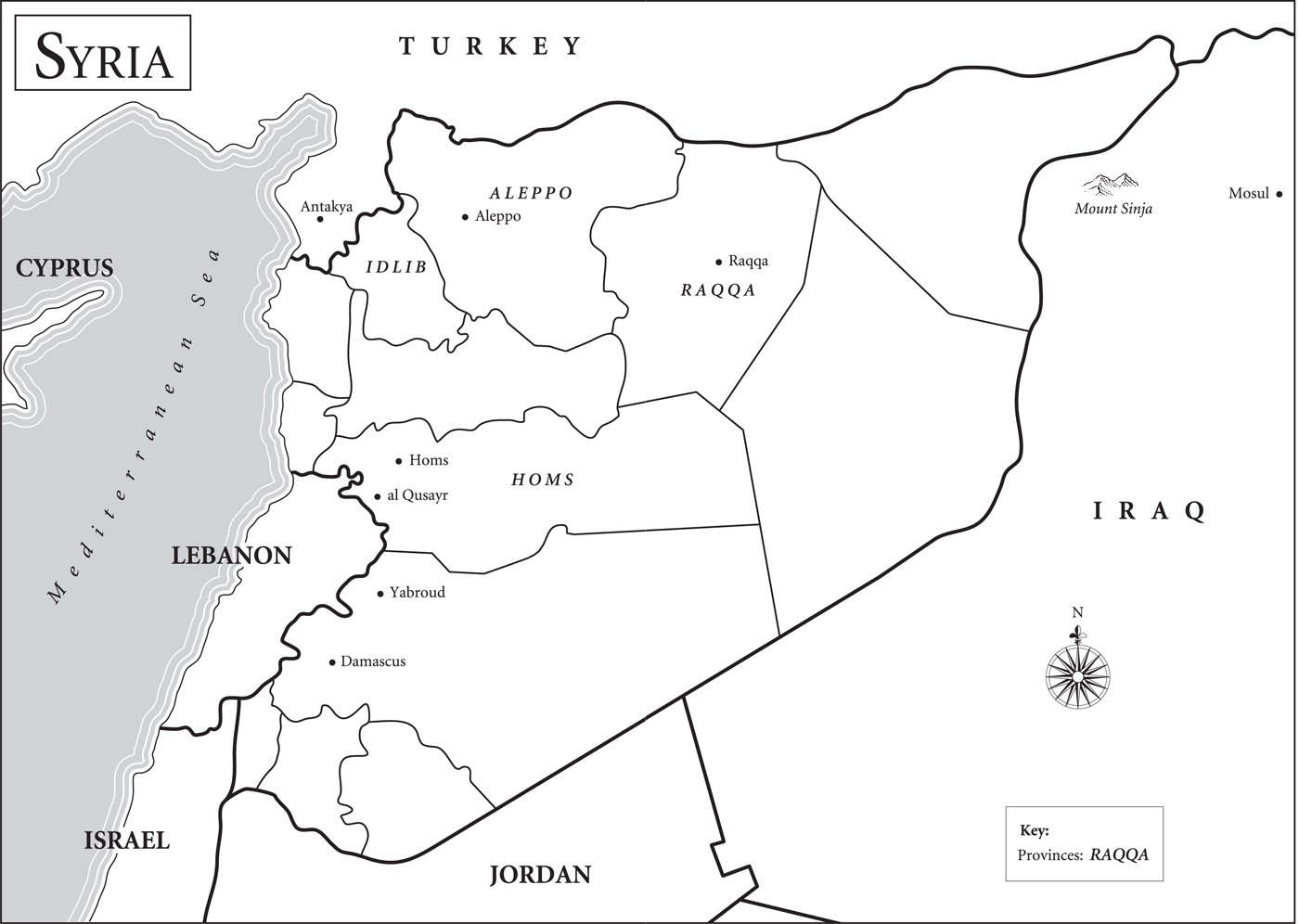Cover copyright 2015 by Hachette Book Group, Inc.
All rights reserved. In accordance with the U.S. Copyright Act of 1976, the scanning, uploading, and electronic sharing of any part of this book without the permission of the publisher constitute unlawful piracy and theft of the authors intellectual property. If you would like to use material from the book (other than for review purposes), prior written permission must be obtained by contacting the publisher at permissions@hbgusa.com. Thank you for your support of the authors rights.
Hachette Books is a division of Hachette Book Group, Inc.
The Hachette Speakers Bureau provides a wide range of authors for speaking events. To find out more, go to www.hachettespeakersbureau.com or call (866) 376-6591.
The publisher is not responsible for websites (or their content) that are not owned by the publisher.
Kneeling in the desert sands, his orange jumpsuit flapping insistently in the breeze, a shaven-headed forty-year-old struggles to focus on the cameras in front of him and the statement hes meant to recite. Its a press conference of a kind, but the man delivering it has his hands tied behind his back and the words are clearly being forced into his mouth. They announce his imminent execution. He calls on his family and fellow citizens to rise up against my real killer, the U.S. government, which had apparently sealed his fate with its recent bombing campaign in Iraq. I wish I could have more time, he says. I wish I could have the hope of freedom, and seeing my family again. But that ship has sailed. I guess, all in all, I wish I wasnt American.
For a brief momentafter the video exploded onto the internetno one was quite sure who he was. Why would they be? Jim Foley was a handsome and intrepid journalist, but hardly well knownhe worked freelance, for little money and in places others feared to tread. If he was squinting in the sunlight it was not only because he was straining to follow the script; it was because hed barely seen the sun in the previous two years.
In November 2012 Foley went missing along with another photojournalist, a Briton called John Cantlie, in Northern Syria. The two were firm friends, and together would spend nearly two years being herded around ten different prisons in three different provinces of Northern Syria, most of them underground and the majority abominably cruel. Along with twenty-two other foreign hostages theyd ended up in Raqqa, the de facto capital of the Islamic State of Iraq and Sham (ISIS), and in the hands of the most notorious group of prison guards.
One of those guards took a starring role in the video; a black-clad, brown-skinned narrator to Foleys left, gesturing at the camera with his knife. Stocky, with his face obscured by a balaclava, the guard was clearly British, and speaking in a London accent. Armed for effect with an expensive Glock pistol, the killer harangued his audience on the evils of the American government. Youre no longer fighting an insurgency, he said. We are an Islamic army and a state that has been accepted by a large number of Muslims worldwide. As the speeches drew to a close, Foley gritted his teeth and clenched his jaw before the killer began slicing through his throat. The camera faded to black. The next sequence showed Foleys bloodied head posed neatly on his back.
The entire video lasted for two hundred and eighty seconds, but Jim Foleys part took up only eighty-five of them. It appeared on YouTube on August 19, 2014, but is thought to have been filmed the day before.together from different takes; the filming must have taken several hours. At one point the picture became a split-screen. A flashy preamble reprised a speech that President Obama had made two weeks earlier, announcing American air strikes in Iraq.
Obamas intent was to halt the advance of a brand-new terror army, whose ranks of hardened jihadis had been swollen by volunteers from all around the world, and whose sandal-wearing blitzkrieg through Northern Iraq two months earlier had already seen them conquer the countrys second city, Mosul. But the result was to provoke the ire of the Islamic State, and to put the lives of its Western hostages in grave danger.
At the end of the video Steven Sotloff, another freelance journalist, appeared, held by the scruff of another orange jumpsuit. Two weeks later, in an almost identical video, he was decapitated by the same British jihadi.
On August 19 Diane and John Foley were at home in Rochester, New Hampshire. It was a normal day, in so far as anything in the Foley household could be called normal since their oldest son had vanished in Northern Syria. For almost two years, they turned over every possible scenario and sat down with just about everyone, from the American State Department to the Syrian Ambassador to the United Nations, in an effort to get him back. They had also been turned over themselves; like some of the other families of the hostages, having their son taken gave them a crash course in the kidnapping industry, its inventive storytelling, its shameless money-grubbing and its downright duplicity. For a long time they had no idea whether Jim was even alive or dead. It threw their lives entirely upside down, shattering their comfortable, leafy existence like a bomb.
At last, however, there were grounds for cautious optimism. Between March and June of 2014 fifteen European hostages being held alongside Foley were freed in a series of deals brokered among European governments, insurers and families. For the Foleys, one of the worst things was not knowing what ISIS wanted; recently, however, its motives seemed to have become more transparent: they wanted money. In early August, Diane Foley went on her own to Europe to meet some of the freed hostages. In Copenhagen shed spent time with Daniel Rye Ottosen, the Danish photographer whod been released in June and whod become a friend to Jim in captivity. After that shed traveled to Paris to drum up support in the American Embassy there. A prominent Syrian opposition activist had offered to try to open up a line of communication between the U.S. government and the Islamic State, and Diane was quietly hopeful. Finally, I thought, maybe someone can help, she told me. In Paris, she also spent the weekend with another two hostages whod been with Jim in the prison, Pierre Torres and Didier Franois, and discussed fresh ideas for how to get Jim out.


